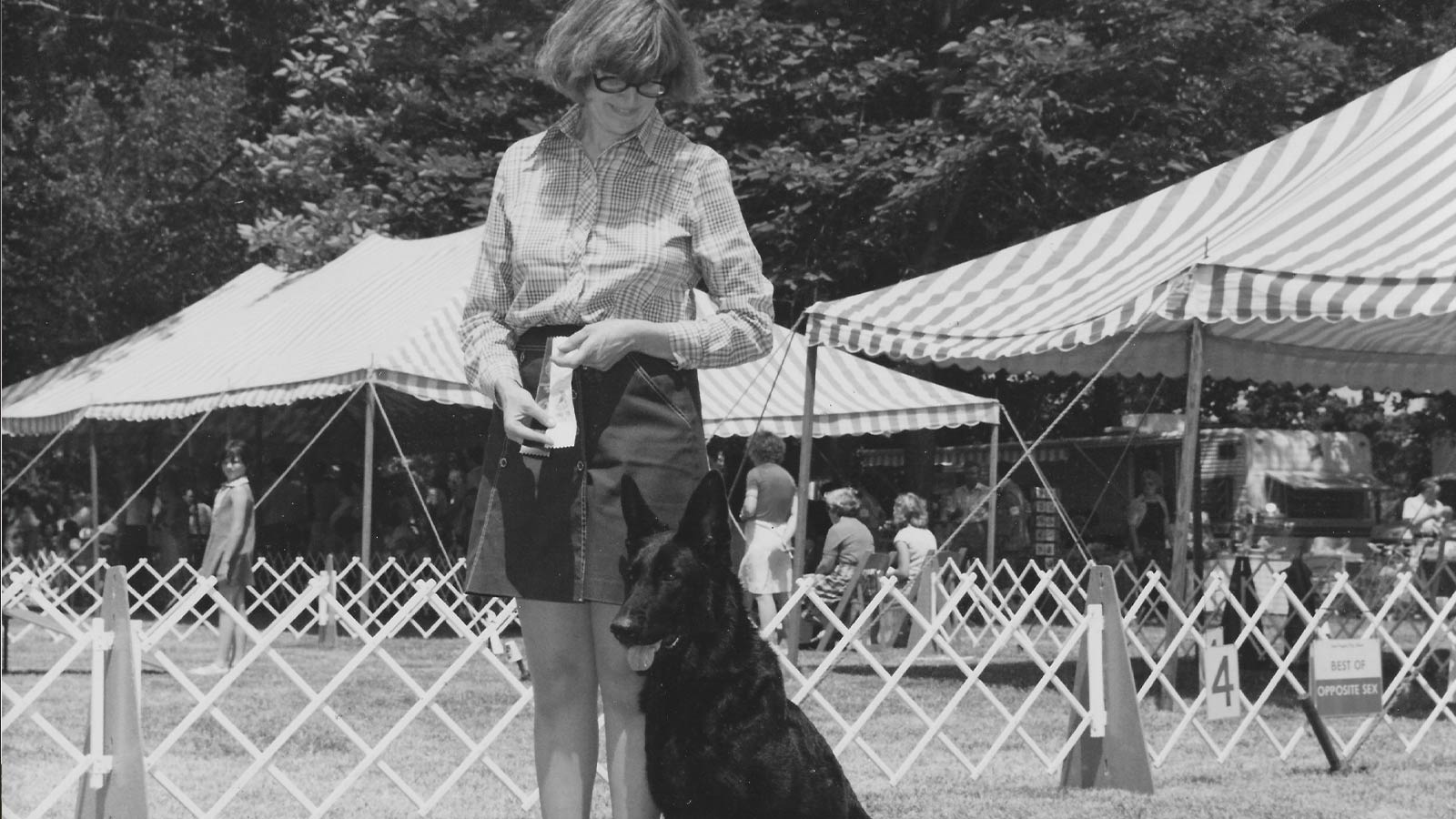Education vs. Training

Anne Gafke shares her 50 years of experience connecting with man’s best friend.
A Google search of dog trainers in Columbia brings up many businesses with five-star ratings. However, only dog trainer Anne Gafke has a five-star rating that carries 50 years of experience and a deep, valuable understanding of dog training.
Anne’s 50 years of experience began with training a family dog that her husband, who was in the military, insisted be well-behaved since their family moved around so much. From there, Anne trained dogs for other military families who were having difficulty moving around with their dogs.
Anne says: “It soon grew from [one person] having a problem to several other people having a problem, and then they knew somebody, and they knew somebody. So that’s how I got started in training dogs. Of course, we moved, and the same thing sort of repeated itself.”
Eventually, Anne’s husband retired from the military and they came to Columbia.
“We weren’t in the service anymore, and the same thing sort of happened, except I had a young [German] shepherd by then that I was working on training to show,” Anne says. “I had trained him, but I had not worked him around any other dogs or anything like that. I needed a class, and there were some people in town who were [giving] dog training classes. I went there, and it was absolutely deplorable. I was very upset by the way they trained and so on. I came home and said, ‘Forget that, I’m going to start all my own classes!’”
And that is how Anne Gafke’s Teacher’s Pet was born. This dog training facility is where Anne applies understanding and caring methods of training to each dog. Anne has trained various dogs for various purposes, but she approaches each case with a consistent belief that the bond between a person and their dog is important and unique.
“I try very hard to set the training to the individual dog. I try very hard to solve problems that people have with their dogs,” Anne says. She further emphasizes, “I like all dogs because every dog is different.”
This individualization is a key component of Anne’s approach to dog training, which she prefers to view as an “education.” Anne says that one of her biggest problems is that people drop off their dogs at her facility and come back and “want to know which button to push.”
“Dogs are biological systems,” she says. “It’s a matter of the education for the dog. How long did it take you to finish school? And yet you think that your dog is so much smarter than you that they can finish school in eight weeks? People want an instant fix, and it’s not a matter of instant fix — it’s a matter of education.”
By approaching each case on its own terms like this, Anne is better able to understand what dogs — and their owners — need out of her training. “I definitely prefer positive reinforcement,” she says. “We want the dogs to love work and love working for you.”


